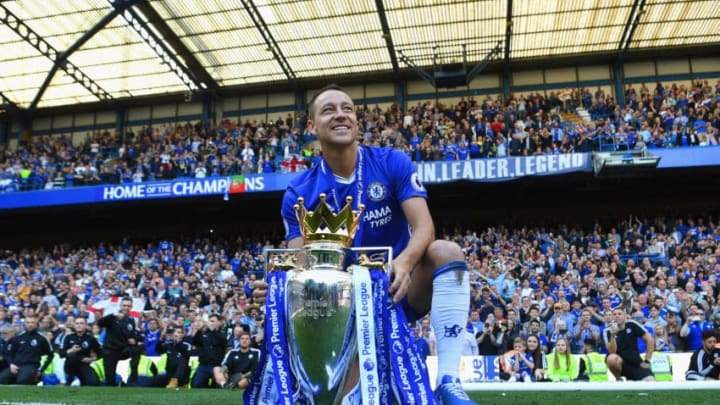Chelsea fans are so used to winning titles they can spend their time talking about how the most recent one was too easy to be a point of comparison. It would be a nice problem to have if they just kept it amongst themselves.
Among the execrable rifts in Chelsea’s fan base this season is the tendency of some fans to pooh-pooh Chelsea’s 2016/17 Premier League title. That was an easy season, they say, one where each of the usual top six teams were unusually weak, leading to the overall weakest top of the table the league has seen in years. The Blues were simply the least weak of the lot. That season was nothing like this season, which is why it is so unfair, so distorted by an agenda, to compare Antonio Conte’s first season with Maurizio Sarri’s.
As per usual, this is balderdash. The main thing they point to is how two other top-six teams – Manchester City and Manchester United – also had new coaches. Jurgen Klopp had started at Liverpool midway through the previous season.
This season started with only one other new coach in the top six: Unai Emery at Arsenal. However, Manchester United switched coaches midseason as Ole Gunnar Solksjaer replaced Jose Mourinho. So, like 2016/17, three coaches battled their way through their first season in the top six, with 2018/19 having the more disruptive element of a midseason sacking.
The only top-six team not to have a new manager in either 2016/17 or 2018/19 is Tottenham. However, even the least self-respecting Chelsea fans will forego arguing how Tottenham is making life on Maurizio Sarri so much harder than he did on Antonio Conte. Tottenham are Tottenham, no matter who is in charge and when. They are a universal constant.
Quantitatively, nothing about 2016/17 stands out as unusual, let alone easy. Chelsea won the title with 93 points, seven ahead of second-place and 24 points ahead of sixth. The previous three seasons – including Chelsea’s 2014/15 title win – saw gaps between first and second of two, eight and 10 points. The difference between first and sixth in those years was 17, 25 and 18.
The Blues won the title in 2016/17 with more points than the three previous champions, but the top six played out in a pretty standard way. Even when the top six included two teams from outside the traditional “big six” – 2015/16, with Leicester City winning the league and Southampton finishing sixth – the top of the table had fewer points but similar levels of parity.
The outlier season of recent history was last year. Manchester City had 100 points, a 19-point advantage over second-place and 37 points over sixth.
For all the talk about how Manchester City and Liverpool are two of the best sides the Premier League has ever known, and rarely have there been two sides of such quality in the league at the same time, the final table will not leave any mark of their greatness.
Even if Manchester United loses the rest of their games, they will still be closer to first place than sixth-place Arsenal was last year. The only noteworthy gaps in the table will be between second-, third- and fourth-place.
This raises the question of what makes the league stronger or more competitive than usual. Is the Premier League having a strong season when only seven points separates the top four teams? That makes for an exciting run-in and speaks to parity among the top clubs, but it may also mean that nobody is especially good. Perhaps the Premier League is having a strong season when they have a team setting every record along the way to clinching the title with a month to spare, with that team showing their exceptional dominance of the most competitive league in Europe. Or maybe having two such teams is the precise formula, striking the right balance between ensuring a close battle at the top without letting too many peons get a sniff of the throne.
I’ve a better idea. Let’s refer this question out to a broader context. The Premier League is having its strongest, most competitive season, when it’s a season where the teams are so historically good that one of them can win the Champions League and still finish only sixth back home.
Does that really settle anything? No. But it’s a good reminder that Chelsea are the last English team to win the Champions League, and since then have won the Europa League and two Premier League titles.
When you have that many trophies still shiny and new in your trophy case you can afford to have some of your fans wallow in the ungrateful decadence of diminishing one of those trophies, like the people who complain about how it’s barely worth spending the weekend at their flat in St. Moritz now that they have their own chalet in Gstaad.
There’s a reason why trophies are awarded every season: because they reflect the competition of that season. In any given season, a team is either winning the title or isn’t.
Chelsea are currently in the latter group. Their fans should be wondering how to rectify that rather than relitigating their most recent title in attempt to justify a manager who seems too willing to spend more time among the 19.
